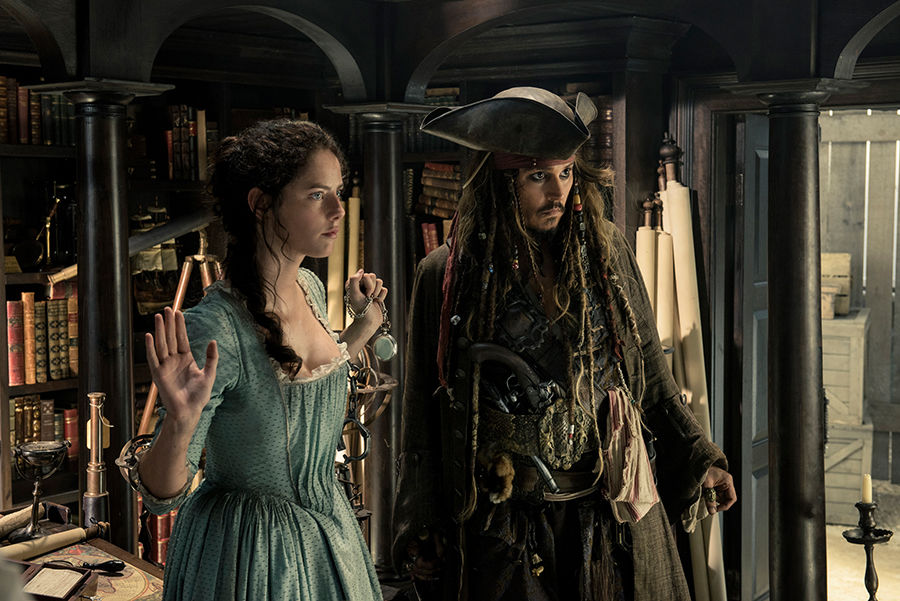“This is the famous Captain Jack Sparrow I’ve been searching for?” a stunned character from “Pirates of the Caribbean 5: Dead Men Tell No Tales” chastises Sparrow upon first encountering the drunken, beleaguered pirate. I can’t think of a better way to summarize my sentiments regarding the Pirates franchise.
Inspired by the popular Disney theme park ride, the franchise’s debut effort — “Curse of the Black Pearl” — burst onto the scene in 2003 as a fresh, confident take on the pirate genre, galvanized by an inspired performance by Johnny Depp as the eccentric but wily Captain Jack Sparrow. Four installments later, Depp’s Sparrow has devolved from the coolest guy on campus to the dropout still hanging around the party long after everyone else has graduated.
Moviegoers who are new to the franchise will likely find it impossible to believe that this same campy caricature once generated so much reverence for Depp among his acting peers that it earned him a SAG Award for Best Actor. And in a development over the years that defies audiences to distinguish the chicken from the egg, the franchise itself has steadily devolved right along with its central protagonist and transformed into the blockbuster version of clickbait, with each sequel seeming to exist solely to rake in the big dollars — until the next one.
This fifth installment, which Disney executives claim will (mercifully) be the final go-around for Sparrow & Co., sees a young and ambitious Henry Turner (a milquetoast Brenton Thwaites) track down Captain Jack in the hopes that Jack can lead him to the mythical Trident of Poseidon, who is the key to breaking the curse plaguing his father, Will Turner (Orlando Bloom, returning for a requisite cameo). Jack and Henry team up with Carina Smith (a game Kaya Scodelario), an astronomer/horologist who is also intent on finding the Trident. Hot on their heels, however, is a ship of pirate ghosts captained by the terrifying Armando Salazar (Javier Bardem, barely recognizable beneath breathtaking CGI effects that are truly a sight to behold), who employs the help of longtime Sparrow nemesis, seasoned sea Captain Hector Barbossa (Geoffrey Rush, who deserves better).
Through the years, many have accused the Pirates sequels of succumbing to a cash-grabbing formula, and never has that been more prominently on display than it is here. Like a tour guide at an art museum rushing us a little too quickly from one exhibit to the next, the action drags us through bloated set pieces that are as exhausted as they are exhausting. Over and over again, Sparrow et al engage in swashbuckling sequences stuffed to the brim with CGI, are taken prisoner, narrowly escape, rinse and repeat. It’s as if co-directors Joachim Ronning and Espen Sandberg are pleading manically for our approval without pausing to ask us what it is exactly that we want.
And the slog is made all the more unbearable by the film’s totally inept attempts at humor. About 95 percent of the film’s yuks, many of which are steeped in lowest common denominator innuendo, are met by the audience with utter silence. For most of the film, the only laughter that can be heard is that of the suits at Disney laughing all the way to the bank.
Despite all of its problems, the film crescendos in a grand finale that feels a cut above its previous action sequences and brings the proceedings (along with, supposedly, the franchise) to a conclusion that’s surprisingly satisfying. But it’s all too little, too late. All the CGI in the world (or even a cameo from Paul McCartney) can hide the hackneyed writing here. For the fourth time in five attempts, the treasure doesn’t justify the journey.

